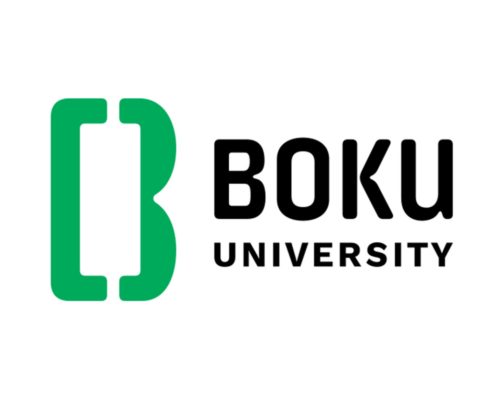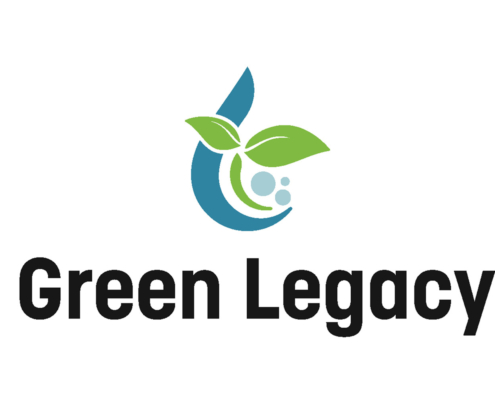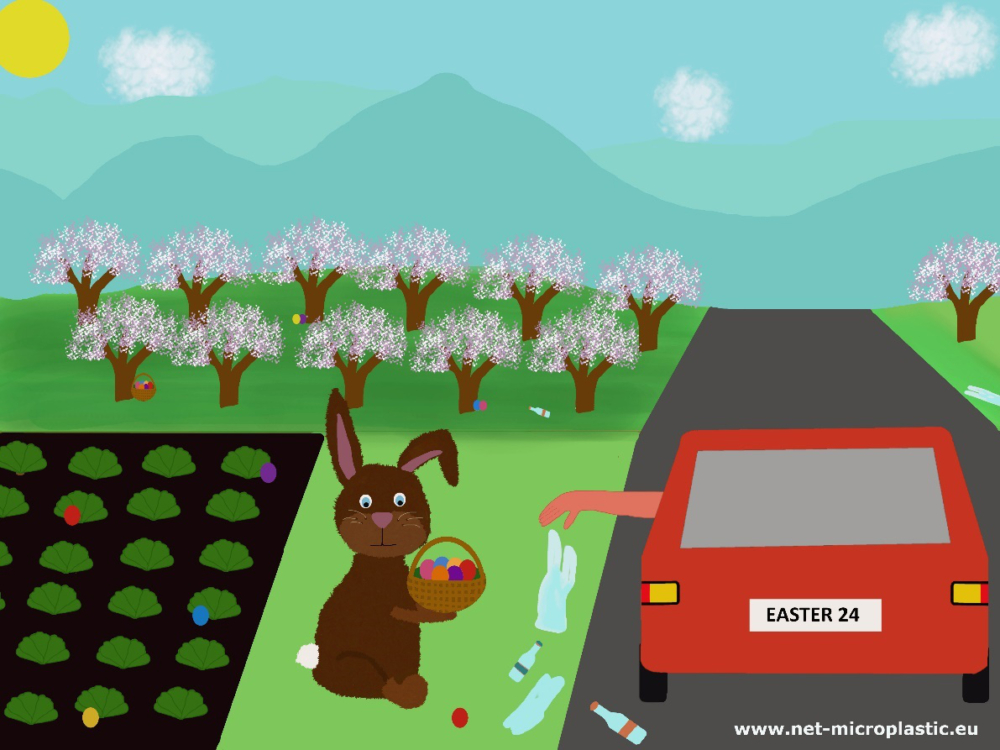Newsletter no. 5
highlights some recent events and activities within the NETmicroplastic network such as our visit to the Austro Vin 2024 in Tulln, including an interview with our NETmicroplastic member Witasek. Also, it presents selected research projects on microplastic aspects funded in 2023. Furthermore, we invite everyone involved in the bioplastics sector to participate in our “survey on bioplastic tools in agriculture, experiences and needs” and welcome our two new NETmicroplastic members, BOKU and Green Legacy. Finally, we announce our Roadmap Consultation Workshop on Strategies and Concepts for the Reduction of Microplastics in Agricultural Soils. The workshop will take place on 27 June 2024 at the UFT in Tulln. Registration is open via our website and participation is free of charge.
Report from the Austro Vin 2024
The Austro Vin Tulln 2024 took place from 1st to 3rd February in Tulln. 240 exhibitors on 18.000 m² presented the latest innovations in viticulture and pomiculture together with expert lectures on plant protection, weed management, determination of fruit ripeness and climatic considerations to name a few. Viktoria Stagl from the AIT Austrian Institute of Technology was there and visited the plastic equipment manufacturers’ booth. She took the opportunity to talk to producers and distributors of e.g., irrigation pipes, growth sheets, binding material for fruit trees and vines about the demand for biodegradable products, pros and cons and recycling options.
We asked Lukas Lassnig from Witasek, associate member of NETmicroplastic and leading Austrian company with close to nature, mechanical, and biological vine protection for his views on plastic alternatives.
What kind of biodegradable products are available and what is the demand compared to conventional products?
LL: Examples include growth sheets made of wood fiber, cardboard or biodegradable plastic. The biodegradable plastic is starchbased. Demand for biodegradable products is still limited, most probably because of the higher price, which is particularly important for wine growers. Durability and stability are also key factors.
Do you have shelf life information for biodegradable plastic products?
LL: We do not provide outdoor durability information for our biodegradable products. We always provide the following information to our customers: No outdoor shelf life can be provided for the product as it is a natural material. This is because each area where our products are installed is different in terms of weather conditions and wind intensity. Therefore, we cannot guarantee that our natural products will last for several years. Most of our products have a shelf life of two to three years, which is very close to the time on the vine. Unfortunately, we still lack detailed long-term experience or studies on some products. We are always looking for new test partners to investigate the longevity of our products.
Are the biodegradable products certified by TÜV Austria?
LL: There is currently no standard for biodegradable plastic and therefore no TÜV Austria certification.
Do you get any feedback from the farmers?
LL: Many farmers think that biodegradable alternatives are a nice idea, but compared to our plastic products, they are simply too expensive and do not last long enough.
What degradable products are the most popular?
LL: No one product has really stood out in terms of sales. However, it is clear that there has been a significant increase in the use of biodegradable plastic products.
NETmicroplastic welcomes BOKU and Green Legacy as new members

BOKU – University of Natural Resources and Applied Life Sciences, located in Vienna and Tulln, organizes its scientific work in six competence areas, which are dealt with in an interdisciplinary manner by the 15 departments on the basis of a solid foundation. Several institutes, in particular the Institute of Environmental Biotechnology, are involved in microplastic research, ranging from the impact of microplastics in soil, ecotoxicology and biodegradability of plastics to microplastics in waste management and bioplastics development.

Green Legacy is a manufacturer and marketer of agricultural soil additives (water-storing granules) containing superabsorbent polymers. Superabsorbents are able to absorb and store up to 300 times their own weight in water and plant nutrients. If they are added to the plant substrate or cultivated soil, an additional supply of water and nutrients is created for the plant. Plants can thus bridge longer periods of drought without stress.
Recent research projects tackling microplastic in agriculture
In this newsletter, we highlight three EU-funded projects, starting between May and September 2023, that aim to develop bioplastic materials for agricultural applications and to develop a toolbox of key soil biological indicators to link information on soil biodiversity to ecosystem services: REBIOLUTION, coordinated by BASF; ELLIPSE, coordinated by Aimplas; and BIOservicES, coordinated by the Universidad Politecnica de Cartagena. In addition, we would like to highlight two of several Dutch projects on micro- and nanoplastics (MNPs) launched in 2023 and funded by ZonMw (Launch of 7 new projects for research into microplastics | ZonMw): “Microplastics and Citizens” to better understand what psychological factors lead people to adopt MNP-protective behaviors, and “The Food for thought” study, which looks at microplastics in soil that end up in crops. For more details, visit our NETmicroplastic database: Database – NETmicroplastic.
REBIOLUTION
The EU-funded REBIOLUTION project is dedicated to developing and introducing groundbreaking, fully bio-based and biodegradable polyester blends. These innovative materials can be used in various sectors. The adoption of these alternative polyester blends could play a crucial role in replacing plastic in applications such as food packaging and agricultural mulch film. By reducing plastic usage and waste, the project aims to make substantial contributions towards mitigating the environmental damage caused by plastic.
ELLIPSE
To mitigate environmental harm and enhance recycling efficiency while reducing costs, the development of innovative value chains and waste management systems is imperative. The EU-funded ELLIPSE project is dedicated to this objective by proposing a groundbreaking waste stream that integrates waste generated from slaughterhouses and paper and pulp sludge processes. This waste would be used in the production of PHAs, benefiting both the agricultural and packaging sectors.
BIOservicES
Soils are at risk, facing increasing pressures from land use changes, inappropriate management, and climate shifts. In this context, the EU-funded BIOservicES project aims to decode the intricate relationship between soil organisms, land use and management, and climate change. To assess their impacts and develop innovative tools for sustainable land management, BIOservicES will identify the pressures and drivers influencing soil life. To explore the relationship between soil organisms, soil structure, and ecosystem functions and services, the project will develop new indicators, digital tools, and models for climate-resilient land management practices.
Microplastics and Citizens
This project aims at identifying key psychological determinants and gamification strategies to encourage the adoption of protective behaviors. An example is communication materials with gamification elements. The researchers will develop a prototype that can be used during events, fairs and higher education classes. In this way, MNP awareness can be increased and MNP protective behavior promoted.
Food for thought
This project is about the uptake, translocation and trophic transfer of micro- and nanoplastics via agriculture into the human food basket. The objective of is to quantify the uptake and transfer of micro- nanoplastics (MNPs) in edible plants and edible organisms. This provides key data about the risks of MNPs in our food.
BIOPLASTIC SURVEY
The AIT Austrian Institute of Technology is currently collecting information on (bio)plastic products (films, nets, clips, etc.) in agriculture, their availability on the Austrian/European market, demand for them and feedback on their performance (pros, cons). The aim of the survey is to assess the status quo of sustainable use of plastic products and to identify further needs for sustainable use. Participation in the survey is completely voluntary and anonymous, and information will be kept confidential.
The survey takes about seven minutes to complete and is open until end of May 2024.
Anyone involved in the (bio)plastic sector for agricultural applications is invited to participate via the following link:
https://easy-feedback.de/survey-NETmicroplastic/1803665/0NFL0d
Thank you in advance for providing this important feedback!
SAVE THE DATE:
NETmicroplastic
Workshop in Tulln
27 June 2024
Following the Stakeholder Workshop 2023, the AIT Austrian Institute of Technology invites all stakeholders, including the (bio)plastics industry, farmers, policy makers, scientists, interested citizens and all those who are somehow involved in the field of microplastics in soil, to participate in the Roadmap Consultation Workshop on June 27th in Tulln, Austria. We will present NETmicroplastic’s latest results from research, surveys and interviews on the following topics:
Microplastics in Compost | Microplastics Knowledge and Perception (Students, Farmers, Industry) | Microplastics in Teaching and Higher Education | Use of (Bio)plastics in Agriculture | Bioplastics as a Technological Solution | Recycling of Films and Other Plastic Products.
In moderated and interactive discussions, we will jointly develop ideas and concepts that reflect the views of different sectors of society and point the way towards an R&I strategy on microplastics.
Participation is free and registration is now open: Events – NETmicroplastic (net-microplastic.eu).
What you do makes a difference,and you have to decide what kind of difference you want to make.”
(Jane Goodall)




